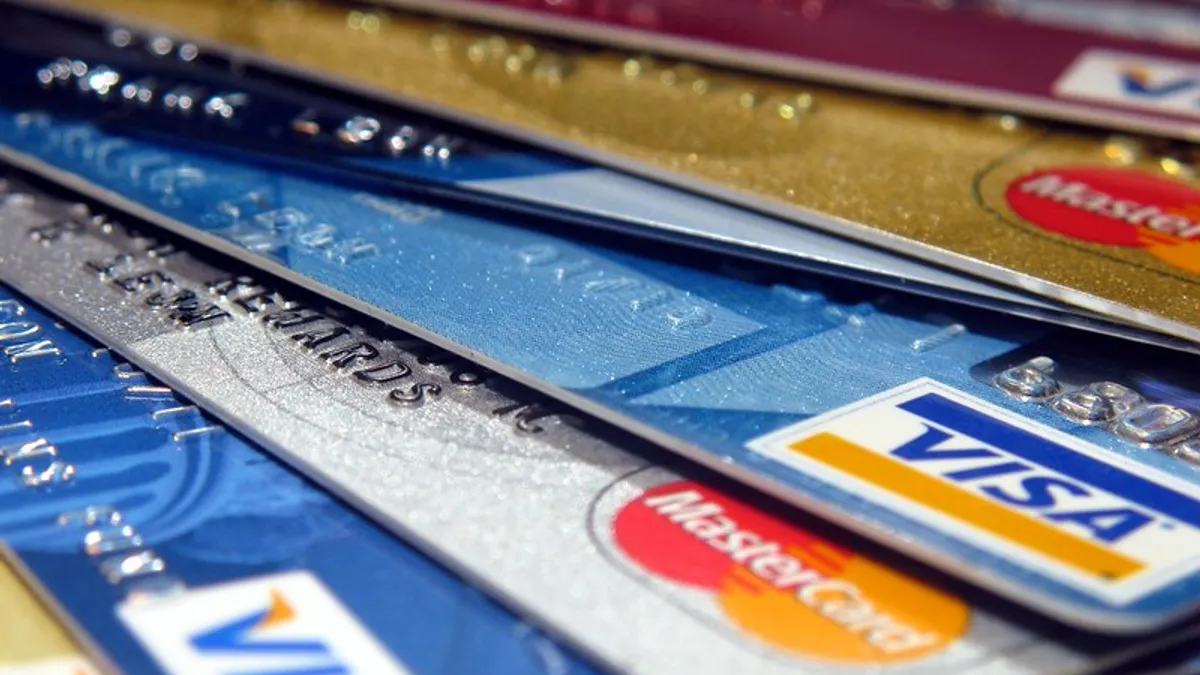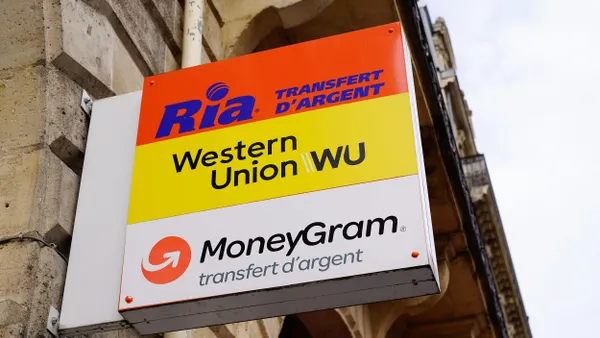Dive Brief:
- The four states where residents have the highest median credit card debt, on average, are Alaska, Colorado, Virginia, Georgia, and the District of Columbia, according to a new report from online credit score and information company WalletHub. Meanwhile, the states where residents have the lowest median credit card balances are Arkansas, Maine, Iowa, Wisconsin and South Dakota, said the annual report released Tuesday.
- WalletHub noted that consumers used their stimulus checks to pay off their debt at record levels in 2020 and in the first quarter of this year, but it still projects net credit card debt will rise by $60 billion this year. U.S. consumers collectively held about $900 billion in credit card debt at the beginning of 2021, down from $971.3 billion at the end of last year, according to a WalletHub study released in June.
- The places where residents are expected to take the longest to pay off debt are Alaska, Montana, District of Columbia, Colorado and Vermont, the report said. On the flip side, states with the shortest expected payoff times are South Dakota, Mississippi, Alabama, Hawaii and New York.
Dive Insight:
WalletHub analyzed TransUnion credit card data for all 50 states and the District Of Columbia as of September 2020 to conduct its analysis. It attributes variations in people's debt levels to factors like how much consumers have been affected by the COVID-19 pandemic and how responsible they've been in managing their finances.
The findings echo other research examining the decline in consumers’ credit card balances. A previous WalletHub report found that Americans reduced their credit card debt by $82.9 million last year, and American’s overall credit card debt fell 10.8% to $955.8 billion in the fourth quarter of 2020.
Plus, a report from S&P Global Market Intelligence indicated that the average credit card delinquency rate for the six largest U.S. bank credit card issuers dipped from 1.18% in February down to 1.08% in March, a shift that the report also attributed to consumers using stimulus checks to pay off debt.
Consumers paying down their credit card debt follows a broader demographic trend with respect to some consumers shying away from debt, a shift underway even before the deadly coronavirus pandemic. According to a 2018 WalletHub report, consumers aged 29 and younger were 93% more likely to view credit cards negatively than people aged 59 and up.
In that study, Baby Boomers had more positive credit card memories than millennials. According to a TransUnion study, consumers with one credit card preferred to pay off their credit card balances before addressing other personal loans during the coronavirus pandemic. However, consumers with multiple credit cards opted to pay off personal loans first. Also, consumers paid off mortgages ahead of credit card and car loans, the TransUnion study showed.













